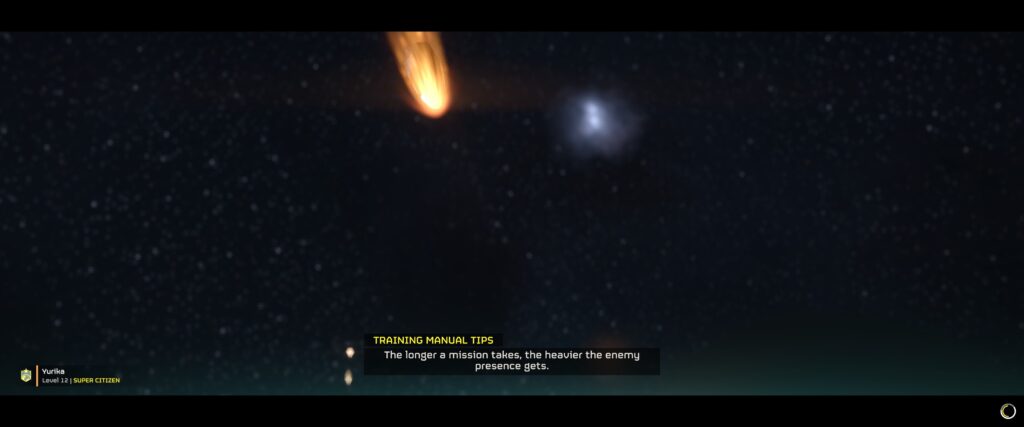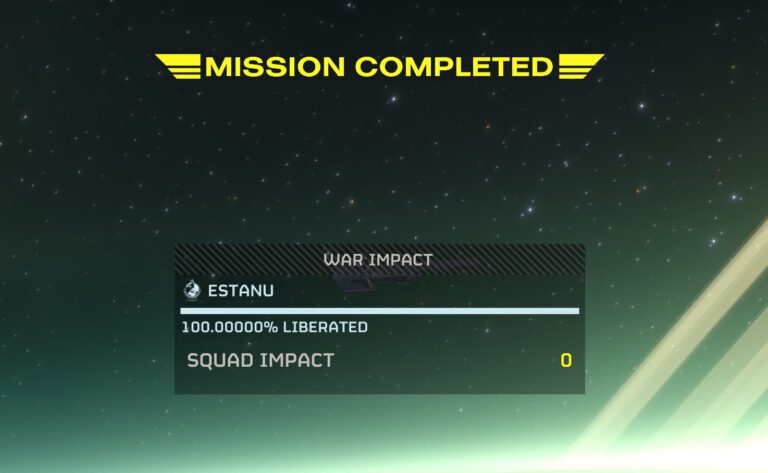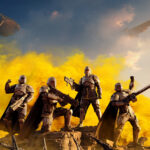Helldiver’s 2 is a multiplayer game at the core and the game purposefully limits content behind group play. You can solo difficulties 1-4 depending on your level, but it becomes much harder at difficulty 5 to go alone. You may not have a squad of four team mates at the ready to dive with you and it can be really intimidating to join a game with random folks from the ‘net.
The first thing you should do is relax and come to terms with the fact that there isn’t always going to be perfect lobbies. Some players are going to be looking for teams with stratagems that align to their playstyle or whatever, but thankfully that only occurs at the highest difficulities where success can be dependent on the build. In the middle of the difficulties, you can relax and not worry so much if you’re bringing the right kit to the fight.
What to Bring
If you want to minimize your chances of friendly fire (and the ire of other players) then avoid any largescale unaimable AoE stratagems like landmines and the mortar turret. While the mortar turret is great, it can often land on other players and it’s best to avoid it with players you’re unfamiliar with.
You’ll want to bring in your kit at least one support weapon for yourself, you do not want to try and take another player’s support weapon when they drop it. There are chances to take the ammo backpack, but unless you’re on voice comms or working together having one player reload another, I’d avoid that mess entirely.
When You Drop
When you first drop always drop your support weapon as soon as possible. That way you can gear up and move out with everyone else. At this point you’re going to just want to stay with the group and avoid going out solo, especially when you’re new. There’s a fair argument about having a player run off and do secondary objectives while the main team focuses on the primary or vice versa, but it’s always going to be far less drama to stick together.

What Not to Do
Don’t drop a resupply unless you absolutely need to, since the resupply is a shared resource. Don’t take more than one supply crate in a four-player game unless the other players say they’re good. Remember that ammo is generally everywhere on a map if you look around.
Don’t use AoE weapons (Arc weapons, mortars, beams, robots, etc.) near other players if possible. The less friendly fire you do, the happier your teammates will be. Don’t use the grenade anywhere near other players as well.
Same with Eagle Strafing Runs. You’ll want to make sure not to throw them in the center of a group. Remember the line from the strafing run will run perpendicular to you when you throw it, so you’ll generally always be safe but your teammates might not.
Always pick samples up, even if another player falls in combat. The team will always get credit for anything picked up by anyone (medals, samples, super credits, etc.).
What Level for Each Difficulty
Difficulty doesn’t equate to monster difficulty, but instead the quantity and types. You’ll have larger more difficult enemies spawn in higher difficulty settings and more of them more frequently. The difficulty never changes based on player count, so more players will always make something easier.
Level 1-10: You can participate easily in any Difficulty 1-5 mission. You won’t have the autocannon yet, but you can still help out and be useful. The machine gun is functional on these difficulties and the early level stratagems work well.
Level 10-20: You can participate in Difficulty 5-7 fairly easily at this point. With the autocannon available and the other higher-level stratagems, you’ll be a lot more effective at taking out larger groups of enemies. You can participate in level 8 & 9, but you’ll likely want voice comms or a team.
Level 20-30: You can participate in anything at these levels. It’s advisable to have voice comms ready for level 8 & 9 (Impossible & Helldive)





